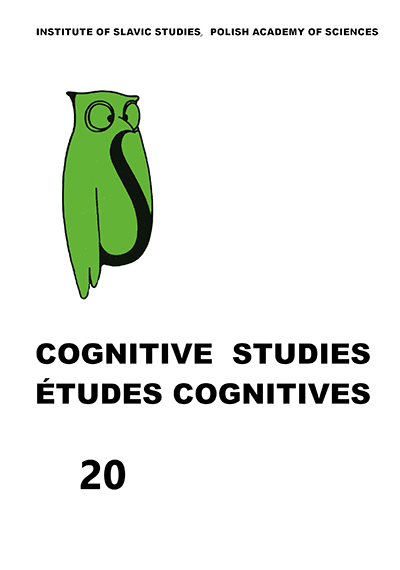The Sociolinguistic Aspect of Ukrainian Russian Child Bilingualism on the Basis of a Survey of Ukrainian Families
The Sociolinguistic Aspect of Ukrainian Russian Child Bilingualism on the Basis of a Survey of Ukrainian Families
Author(s): OLHA SHEVCHUK-KLIUZHEVASubject(s): Sociolinguistics
Published by: Instytut Slawistyki Polskiej Akademii Nauk
Keywords: linguistic situation; bilingualism; mother tongue; dominant language; child's communicative competence; code switching; language mix (surzhyk)
Summary/Abstract: The article explores the linguistic situation in Ukraine, where a key sociolinguistic peculiarity is the large-scale spread of various types of Ukrainian–Russian bilingualism. A special focus is put on bilingualism among children speaking two closely related languages, which represents a current language situation beyond any historical or political context. The article describes the peculiarities of the formation of child bilingualism, which are a result of the changing priorities of the primary and secondary tools of communication. The article presents the findings of a survey covering the family environment, undertaken in order to identify key trends in children's speech in Ukraine. This knowledge subsequently allows for the tracing of the correlation between a mother tongue / parents' second language, the language of family communication, and the national language in Ukraine. Moreover, it helps when it comes to the decision of whether or not to introduce bilingual practices in the early stages of the linguistic personality formation of a child. The concept of a ‘bilingual linguistic personality' is covered, and certain aspects pertaining to how bilingual children perceive the world are listed. The article takes into consideration the issues and criteria of the ‘mother tongue' concept in bilingual settings. The notion of ‘linguistic code switching' is characterized, as well as its impact on the formation of bilingual communicative competence in children. A focus is laid on the use of mixed forms of Ukrainian–Russian bilingualism in the context of the communicative practices of bilingual children. The article also examines a peculiar type of bilingualism, typical of a certain category of bilingual pre-schoolers and primary school children, in which each party of a communicative act tends to preserve their dominant language in an informal setting.
Journal: Cognitive Studies | Études cognitives
- Issue Year: 2020
- Issue No: 20
- Page Range: 1-7
- Page Count: 7
- Language: English

